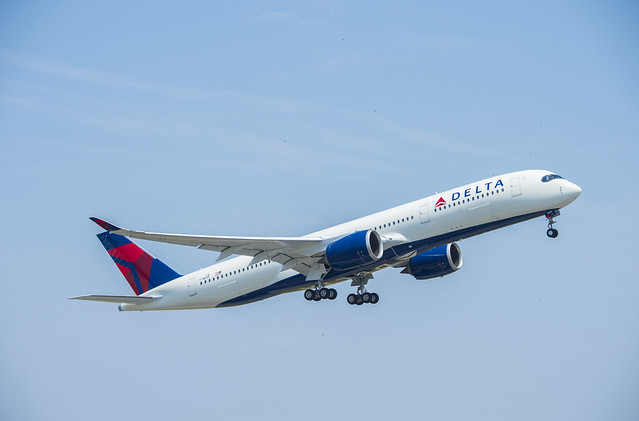Delta partners with Auburn University to propel next generation of pilots
Article body
Auburn University has been selected by Delta Air Lines as one of eight colleges to launch the Delta Propel Pilot Career Path Program. The program will help identify, select and develop the next generation of pilots. Each student selected for the program will be matched with a Delta pilot as a mentor, and the students will receive a Qualified Job Offer from Delta, detailing a defined path and an accelerated timeline to become a Delta pilot.
“We are pleased and proud to be one of Delta’s initial partners in the Propel program,” College of Liberal Arts Dean Joseph Aistrup said. “Our students will have the distinct honor of being selected to participate in this program, which in turn will help to ensure that they have careers with a company that is a global leader in aviation.”
The Delta Propel Pilot Career Path Program has three main areas of focus— college, company and community. This three-pronged approach will help Delta support future aviators as well as current Delta employees who have a passion for aviation and strong interest in becoming a Delta pilot.
The Propel program is the first in the U.S. to offer students their choice of three unique career routes and an accelerated timeline to progress to Delta, in 42 months or less, after:
- Flying for one of the Delta Connection Carriers
- A job-share flying for Delta Private Jets and instructing for one of Delta’s partner collegiate aviation institutions, or
- Flying military aircraft for the Air National Guard or Reserves.
This is the second partnership announcement between Delta and Auburn. In November, Delta Air Lines, the Delta Air Lines Foundation and the Jacobson Family Foundation granted $6.2 million to support multiple programs at Auburn. The gift is funding the construction of the Delta Air Lines Aviation Education Building, as well as support the purchase of an aircraft simulator and create endowed faculty professorships within the Department of Aviation, home of one of the longest standing public flight programs in the country. Delta's gift also will provide funding for the university's Radio-Frequency Identification, or RFID Lab.
“Auburn students are consistently recruited because of their professionalism and the preparation they receive inside and outside the classroom,” said Auburn University President Steve Leath. “We’re happy to be selected by Delta once again as a partnership university. Delta’s continued support reflects the company’s confidence in an Auburn education.”
During the next decade, Delta expects to hire more than 8,000 pilots to staff the thousands of daily flights it operates around the world as other pilots approach mandatory retirement age. To prepare for this shift in the workforce, Delta has partnered with eight universities. The other universities are Embry-Riddle Aeronautical University – Daytona Beach; Embry-Riddle Aeronautical University – Prescott; Middle Georgia State University; Middle Tennessee State University; Minnesota State University, Mankato; University of North Dakota; and Western Michigan University.
The Propel program builds on Delta’s long-standing investments in the future of aviation professionals and the communities it serves worldwide.
The Collegiate Pilot Career Path will begin accepting applications August 2018.
Additional information about the program and the airline’s partner universities can be found on propel.delta.com.
To learn more about Auburn’s commitment to excellence, go to auburn.edu/auburninspires.
Related Media
Media interested in this story can contact Communications Director Preston Sparks at (334) 844-9999 or preston.sparks@auburn.edu.
The College of Liberal Arts is the intellectual heart of the university and one of the largest colleges on Auburn's campus. The College continues its long tradition of quality education, instruction, and outreach in a number of outstanding departments. The College of Liberal Arts is composed of the School of Communication and Journalism, the University College, and twelve departments which are divided into four academic areas: fine arts, humanities, communications, and social sciences. Our graduates hold a strong record of industry employment and/or acceptance into graduate schools and training programs, both here and abroad.





